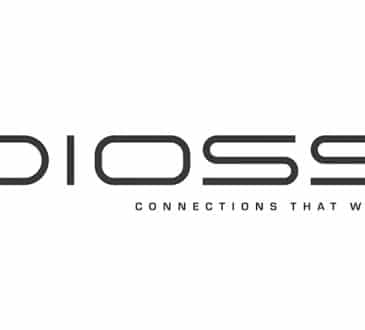Dress For Today’s SUCCESS & Thrive Tomorrow!

The Business of Dress Revisited 25-Years Later …
So where are we globally 25 years later …
Since 1997, the three largest industry studies, countless Doctorial students research interviews on casual dress in the Workplace and its relationship around professionalism, productivity and profitability have drawn upon research and feedback I have been involved in.
The catalyst for the start of business casual can be traced back to Levi Strauss & Co., which in the late 1980s and early 1990s began sending out promotional packages to company executives touting the benefits of dressing casually on the job. The packet included a videotape and brochures of sharp-looking casual wear.
If you want to ensure the highest level of professionalism among your organization, while embracing casual business dress, then your business must have a clear standards-of-conduct policies and define, regulate, monitor and police appropriate Business Casual Dress for their workplace, environment and client engagements. And, when there is any ambiguity or inconclusive enforcement, the human resource problems escalate.
Think of it this way …
Dress appropriately will take on many looks globally, depending upon the environment you are in and how you wish to be received by others.
Empirical data from psychology supports how one dresses (casual dress) equals casual self-beliefs, equals individual reinterpretation of what others values, purpose, beliefs and actions SHOULD be and how those SHOULD align to them. Not, how one should align to a preexisting Cause, Organization, Social Tribe in Civilization.
The downside is that we overwhelming evidence shows that how one dresses directly influences one’s internal self-esteem and inner self-dialogue, this manifests in the outward behavior, actions, communications others experience!
Faded wardrobe equals faded professionalism. Clothes with holes equals professionalism with holes, gaps and cracks …
If for you it’s a Jeans environment, ok, so let’s define that look. View this as your uniform, so it needs to be your brand consistency and not just left up for interpretation.
If for you it is a T-Shirt environment, ok, so let’s define that look. View this as your uniform, so it needs to be your brand consistency and not just left up for interpretation. I once had a client ask me to walk through an area of the operation that had an up-tick in HR issues and performance degradation challenges. To my stunned disbelief, as I entered the work area the first person, I saw chitchatting away time with another person was wearing a T-Shirt of Donald Duck “flipping you off” … Problem identified and problem solved.
With this, professionally we can direct line trace how one internalizes their Job Expectations/Descriptions and what we see in minimal, expected or excellence in performance – more often than not to how one presents themselves to others!
So, uniforms that yell professional and fun and standards-of-dress-conduct that address this and allows for degrees of individualization and professional will always spell success. If for your customer interaction
I’ve never seen a business woman or man board a plane professionally dressed, sit in a bulk head seat and put their feet on the wall. Conversely, today it is a norm to see a person dressed slovenly sit in a bulk head seat and place their feet on the wall. I’ve even taken pictures of such slovenly individuals shoving their bare foot from behind me onto my seat arm rest – amazing!
I’ve never seen a person in a professional suit or professional dress cut loose with abusive language or feel compelled to assault another person, but the media is filled with endless examples of the opposite daily – amazing!
I’ve never seen someone dressed professionally address their elder, a superior or traditionally respected industry leaders by first name. I regularly see casually dressed individuals not address a person by formality, sir name or rank – amazing!
PROFESSOINAL DRESS …
Casual Business Dress or not, uniforms or not, like many other business factors can be utilized to attract and retain great talent in the new global marketspace post COVID, and with the economic realities of your business these factors are all just that. You must have clarity to your organizations Values, Purpose and Goals as the front seat drivers to your decisions and how you live these and how you expect others to exhibit them as well.
I love the saying, “You only get one opportunity to make a first impression!” Are there exceptions to any thought, rule, model, or process absolutely. However, read the “writing on the wall” with casual dress, comes casual everything else, and the past decade is demonstrating the imploding implications of what others see about you?
Maybe an appropriate middle ground may be the solution to many situations, whether it is in-place work environments or remote and home-based workers, but keep in mind, how you dress does drive how you internally see yourself and outwardly perform.
Don’t read and jump to the conclusion, that I’m a dinosaur and void of progressive future focused reasoning, I get IT!
There’s a time and place for many dress styles, just recognize that if your dress proceeds you and yells #! #% then you relinquish the right to expect others to see you as LEGITIMATE!
What is old is new again, here is a 2003 national Press Release …
I find the language from 20-years ago to be a reboot of exactly what I am hearing, reading, seeing and being asked across the global business economy once again.
Bosses Speak Out on Workplace Attire;
New Research Reveals Employees Should Dress Up
_________
“No Jeans,” “No Sandals or Flip-Flops” and “No Tight or Revealing Clothing”
Top Employers’ Wish List This Fall
Greensboro, NC – September 8, 2003 – A national survey released today shows that, when asked, most American employers say they would urge employees to make definite changes in their workplace wardrobe choices.
“No jeans” topped the list of responses when bosses were asked about what one thing they would change about their employees’ attire. The survey was posed to 150 senior executives and CEOs among the nation’s top 500 manufacturing and service firms in a recent two-part study commissioned by No nonsense® and conducted by Wirthlin Worldwide. Other responses from bosses included, “Shoes (versus sandals or flip-flops),” “Dress more formally,” “No tight or revealing clothing,” “Wear suit jackets,” and “No sweats, shorts or Capri pants.”
In addition, more than 70 percent of executives surveyed agreed that workplace attire affects an employee’s state of mind and/or behavior and, therefore, his or her productivity, and nearly two-thirds of executives (63 percent) agreed that employees who wear more professional attire do advance faster in their careers.
“Given lingering high unemployment rates, employees may want to hang up the flip-flops, not just for the summer season, but for good,” said Jeffrey Magee, PhD, author and workplace expert. “What these findings strongly suggest to employees is, even though your company dress code may be business casual, how you dress sends a message to your employer about your level of professionalism and productivity, and that it can impact your career path.”
Blue Jeans for Bonuses?
The survey also queried the American public about their views on workplace attire, and a surprising majority (69 percent) said they would react favorably if their companies adopted more professional workplace attire, even though as many as 85 percent of executives believed they wouldn’t. Even more people (75 percent) would be willing to give up casual attire in the workplace if it helped them advance their careers faster and obtain better pay.
–more–
The research also revealed that 75 percent of the American public and 63 percent of employers said that their employees consider business casual attire to be a privilege (something they are allowed to do) rather than a right (something they are entitled to), debunking the notion that casual attire has become an employee benefit since the trend took root in the mid-1990s.
The Evolution of Attitudes Toward Attire
“In the past several years, a handful of companies have re-adopted formal dress policies, and more recently, some surprisingly large corporations, including Bank One and Target, have even introduced company uniforms as a way to guard against over-casual attire,” said Magee, who has extensively studied the challenges facing America’s multi-generational workforce.
“Yet for many companies, casual dress has become ‘too casual,’ but company executives remain reticent to re-vamp their policies. Given continued cutbacks in costly employee benefits such as health insurance and retirement plans, it’s not surprising that so many executives believe that employees would riot if asked to adopt more professional attire,” he said.
“The good news now is that people’s attitudes toward workplace attire appear to be changing, and employees today are willing to demonstrate a more serious approach to work, in general, largely given the economic environment,” said Magee. “As a result, American companies could realize the associated benefits of this low-cost opportunity to boost productivity, and not risk alienating the workforce.”
The two-part survey, entitled “A No nonsense Analysis of Workplace Attire Trends,” was commissioned by No nonsense in June 2003 as the first in a series of related studies which seek to understand the relationship between workplace attire and productivity and its relevance and importance as a modern-day employee benefit.
# # #
About This Survey
Wirthlin Worldwide surveyed 150 CEOs and senior-level executives in the top 500 U.S. manufacturing and service firms by telephone in June 2003. Wirthlin’s national consumer quorum was conducted by telephone among a representative sample of 1003 adults aged 18 and older between May 30 and June 2, 2003, with a margin of error of +/-3 percent. Detailed findings are available upon request.
About No nonsense®
No nonsense® is owned and operated by Kayser-Roth Corporation, an affiliate of Golden Lady, a privately held company located in Montova, Italy. Kayser-Roth Corporation is the second largest legwear manufacturer and distributor in the United States. Headquartered in Greensboro, N.C., Kayser-Roth has four plants and two distribution centers in North Carolina and Tennessee. The Company produces No nonsense® Pantyhose, tights and socks, legwear products under the Calvin Klein Hosiery and HUE Legwear names, Burlington Hosiery and Burlington Socks, Timberland Casual Socks and PrimaSport socks, as well as private-label legwear programs for major retailers.
Written by Dr. Jeffrey Magee.
Have you read?
The Future Is Global by Theodore (Ted) Clark.
Science-Based Strategies to Control Stress and Improve Your Digital Life by Dr. Diane Lennard.
Leaders: Is Your Biggest Strength Actually Your Biggest Weakness by Antonio Garrido.
Why Smarter Collaboration Should be at the Top of Every Senior Leader’s Agenda by Heidi K. Gardner.
The 5-point plan to build a fantastic reputation by Ros Weadman.
Add CEOWORLD magazine to your Google News feed.
Follow CEOWORLD magazine headlines on: Google News, LinkedIn, Twitter, and Facebook.
Copyright 2024 The CEOWORLD magazine. All rights reserved. This material (and any extract from it) must not be copied, redistributed or placed on any website, without CEOWORLD magazine' prior written consent. For media queries, please contact: info@ceoworld.biz








